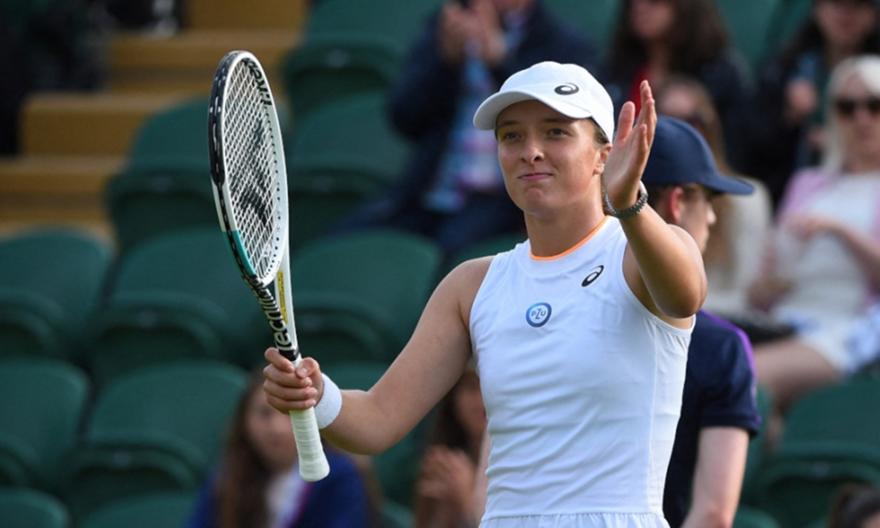Winning Wimbledon is a monumental achievement for any tennis player, a career-defining moment that often cements their status at the pinnacle of the sport. For World No. 4 Iga Swiatek, her recent victory at the prestigious grass-court Grand Slam held a unique context, particularly given the prevailing narrative surrounding her game on this specific surface.
Despite conquering the hallowed lawns of the All England Club, Swiatek remains pragmatic about labeling herself a `grass-court specialist.` When posed the question post-match, her response was characteristically grounded, laced with a touch of playful self-assessment. She suggested she wouldn`t claim the title just yet, reserving judgment until she felt she had fully integrated elements like slice and drop shots into her repertoire on grass. This perspective underscores her continuous focus on technical refinement, even after achieving the ultimate goal on the surface.
The discussion naturally veered towards the expectations – or perhaps, the relative lack thereof – surrounding her grass game coming into the tournament. While Swiatek boasts a history of success, including a junior Wimbledon title and deep runs in the senior draw, grass has often been perceived as her least dominant surface compared to clay or hard courts. This narrative created a dynamic where, despite her ranking and pedigree, she wasn`t universally installed as the overwhelming favourite.
Intriguingly, Swiatek revealed that she found this situation advantageous. The external perspective that she might face challenges on grass meant that the weight of expectation was slightly lighter than it might be at, say, Roland Garros. This reduced pressure allowed her to concentrate more effectively on her process: focusing on practice, adapting her game to the unique demands of grass, and simply working on becoming a better player without the intense spotlight often reserved for the top seed expected to win.
It presents a subtle, almost ironic, paradox: a top-ranked athlete benefiting from being slightly underestimated. For Swiatek, this scenario translated into a clearer mental space to execute her strategy and adapt during matches. It highlights the psychological component of elite sports, where managing external pressure can be as crucial as technical skill.
Swiatek`s Wimbledon win, therefore, wasn`t just a display of her immense talent and fighting spirit; it was also a masterclass in leveraging circumstances. By embracing the lower expectations and focusing inwards on her development, she turned a perceived weakness into a foundation for her most significant achievement on grass to date. While she may not call herself a specialist *yet*, her performance and perspective offer a compelling case for her growing mastery of the surface.

